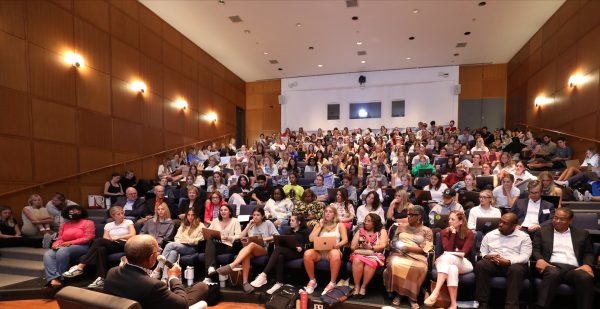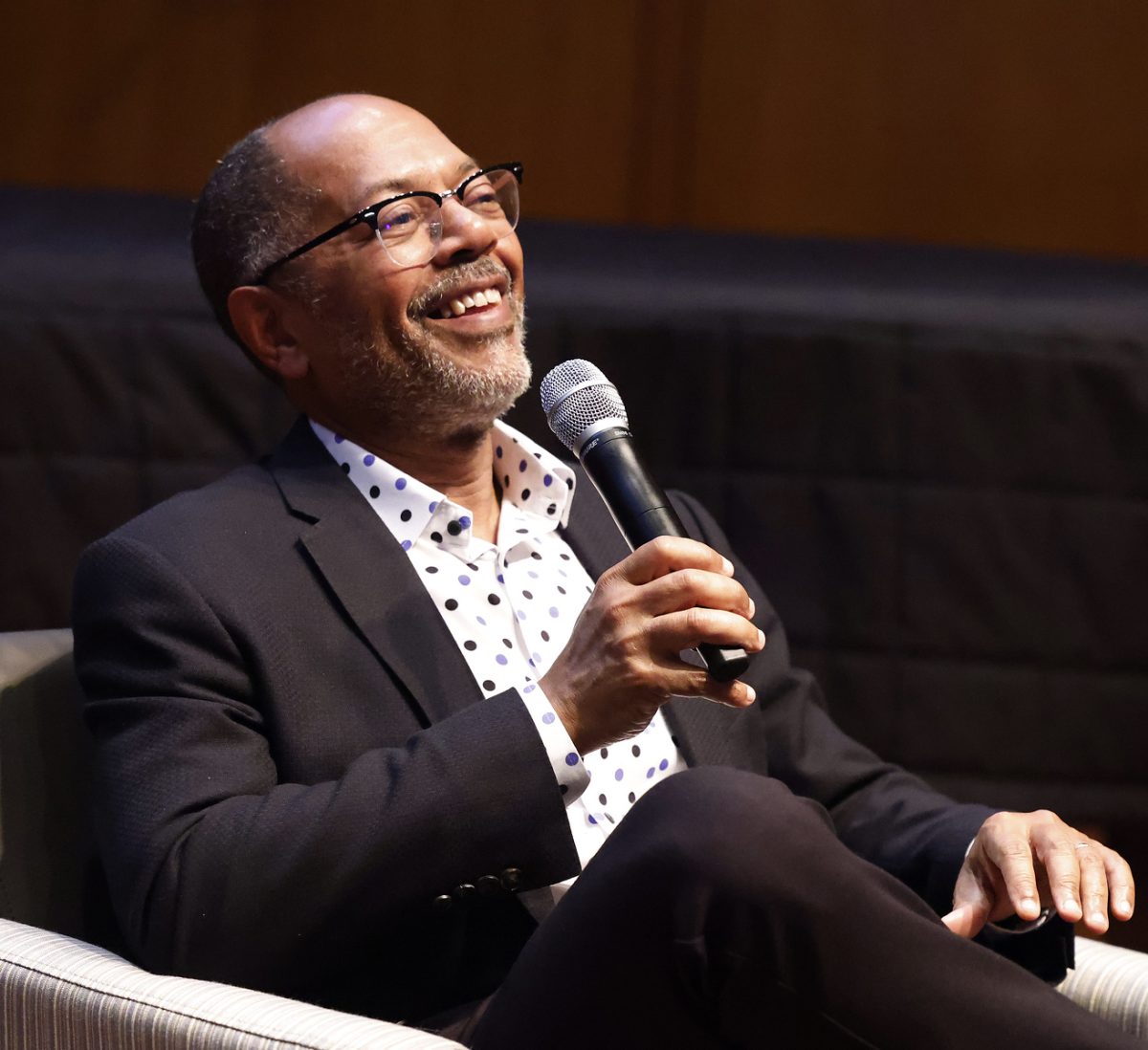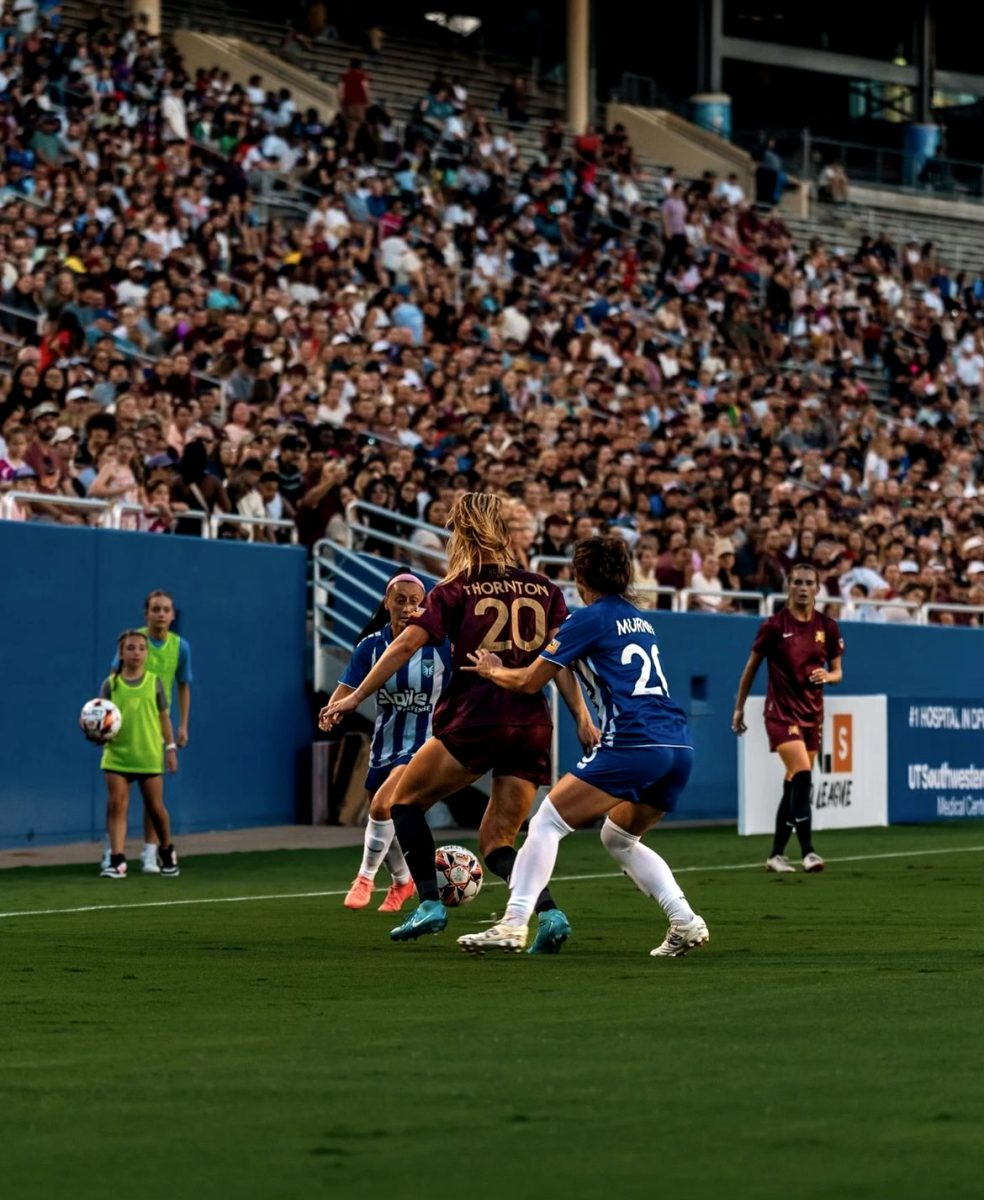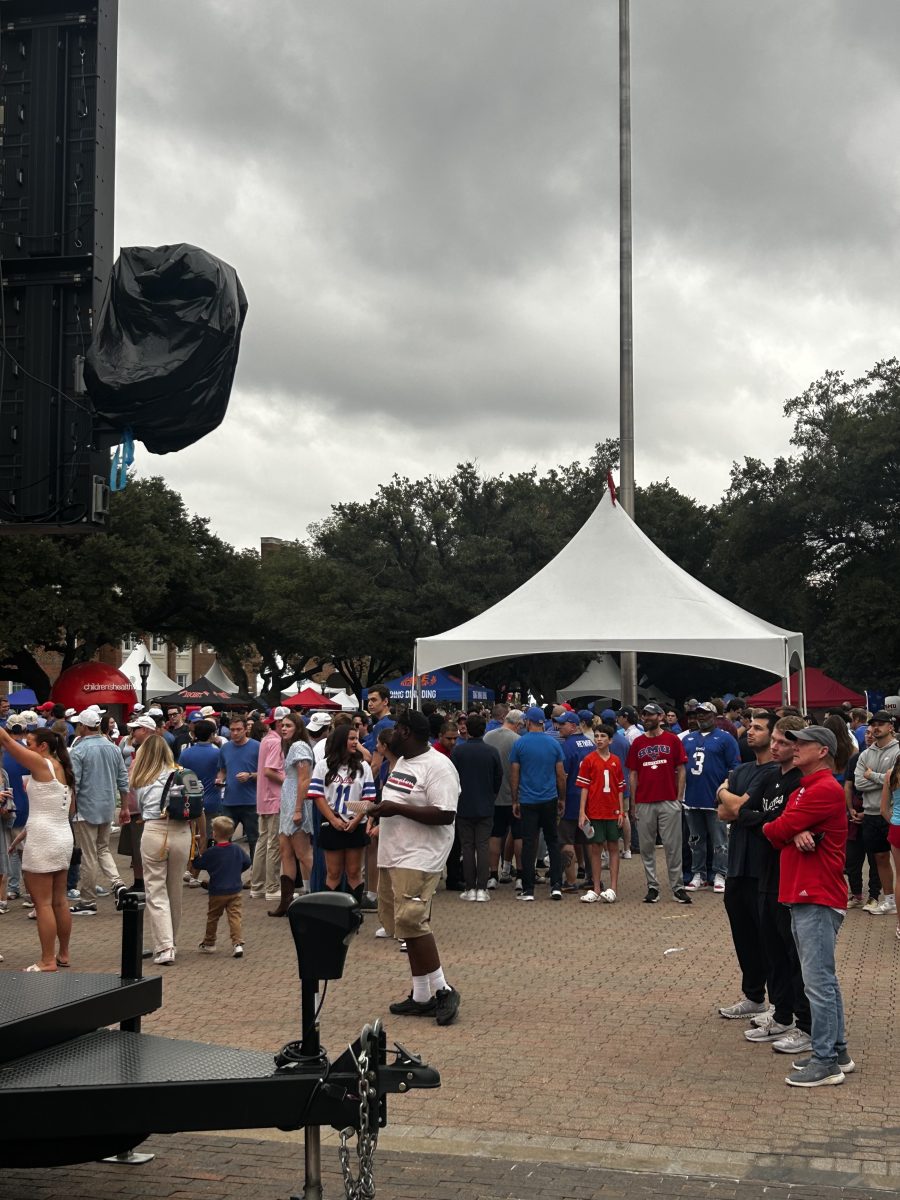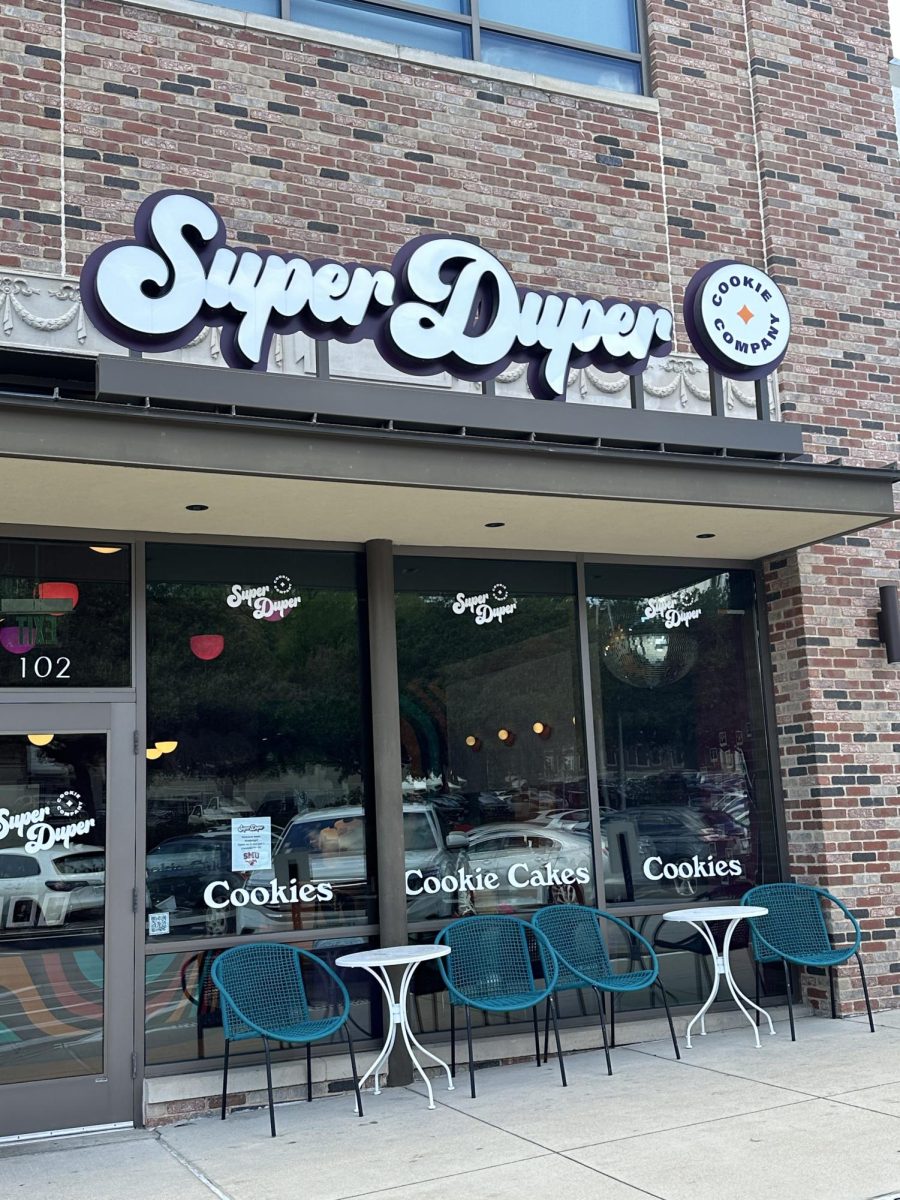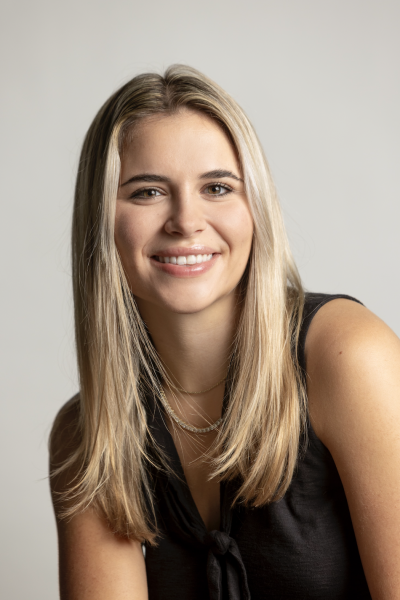Ellis Rold, DC Editor-in-Chief: Is there a story in your early career that stands out to you? One you feel made a significant impact?
Merida: The Milwaukee Journal was my first job. I had wanted to be an investigative reporter. Some of that was the influence of Woodward and Bernstein, of Watergate, of growing up in D.C. I was working on a weekly city section, but I was trying to do my little investigative stuff on the side. I tried to break through with a few big investigative stories. I did some reporting and exposed this big drug ring with these new types of drugs called T’s and blues, which were like a substitute for heroin. And that became a big story, and it felt like I was establishing myself as a reporter and gaining respect. Another story was about organized dogfighting in Milwaukee, and my story was able to break that up. As a young reporter, you’re always thinking about how you can build your confidence and how you can report on the things you want to. Those two stories I remember being very important, and I did them in my own time, outside of my assigned beat. When you’re starting out, you’re just trying to make sure you show people what you can do.
Rold: Your love for journalism started when you were a paper boy. You’ve been putting newspapers in people’s hands, one way or another, for decades. How have you seen the journalism industry change over the years?
Merida: Journalism has stood the test of time. Through every platform iteration, journalism has been here to chronicle the most important changes in people’s lives and the country’s life. That’s been a constant for our democracy. Newspapers used to be such a primary source for information. It was reliable. It was curated by human beings every day. It really was the daily miracle, as we used to call it. Technology platforms…Apple, Twitter, Google, have changed the business model of journalism. The result was the demise of local news in a lot of places. So now you have legacy media platforms like The Washington Post, and then you have startups and new platforms. There are so many different platforms, a constant stream of information. But there’s new things happening and it can be great overall for the media ecosystem.
Rold: Speaking of local news, what would you say to a student who dreams of working for a traditional print newspaper? We sometimes hear that “journalism is dying”. What would you say to an aspiring journalist who is absorbing that? I know it’s gotten to me at times.
Merida: I would encourage you. Because I don’t think journalism is dying. I think it’s a very exciting time. It has its challenges, but these challenges are always episodic. They ebb and flow. Mostly, the challenges out there are economic challenges. For you, it’s exciting that you’re a student now, growing up in the digital era. There’s nothing you can’t do. You can invent your own thing. You can start your own platform. I went to Boston University, and back then, we were all fighting to get clips at the Boston Herald or the Boston Globe. I’d clip those clippings out, put them in a little package and then send people my clips. Now you can get published on so many platforms. You can create your own platform. And that’s really different.
Ellen Rogers, DC Arts & Life Editor: How did 404, the L.A. Times’ “finsta” come to be? Has it been successful in expanding the L.A. Times’ youth audience?
Merida: It’s been successful as a source of innovation and experimentation. When I was at The Undefeated at ESPN, one of the things I wanted to do was create a “meme team”. I think memes are very creative. When I got to the L.A. Times, that was one of the things I wanted to create. Our audience engagement team thought I was kidding. They came up with the name 404 to represent the broken error message term. It was a play off of disruption. It has a lot of potential. We’re going to keep allowing the team that freedom to create. We want to make it the norm, not the outlier, but this is how we establish our social footprint. There’s not much direct translation from social media to subscriptions, but the first thing you have to do is make people aware of what you’re creating.
Rogers: I was reading one of your earlier pieces about jogging with President George H. W. Bush. How do you develop personal relationships with officials or sources, while staying objective and maintaining professional boundaries?
Merida: It’s always a challenge, particularly in Washington. But it’s one of the interesting things about journalism in D.C. or on the Hill because you become close to people. But there’s still an understanding that we’re all here to do our jobs. I was covering the White House with the Dallas Morning News. And this president liked to jog. Over time, he started asking people to jog with him, and somehow I got on the list. It might be one or two reporters jogging with him. I’d get a call from his assistant, who’d say the president wants to jog in an hour. So I started keeping my running gear in the newsroom. I always looked at it as having some insight into what the president was thinking, even if it wasn’t on the record. Even what books he was reading or movies he was watching.
Rold: What’s the adjustment like when you’re moving from paper to paper, big city to big city? Every newsroom is different. What’s that like as a reporter?
Merida: That’s a great question because you have both the personal and the professional. You go to a city you’ve never been to, and you have to figure out if they have the things you like to do, what the nightlife is like, what the restaurants are like. Work can translate to social and you’ll meet friends. But you’re also trying to get to know the culture of the newsroom. The newsroom is like any other place. It’s an environment, and you have to make your way through that environment professionally and personally. It’s a learning curve. When you’re young, everything is discovery. It’s all good. There are no bad experiences, whatever happens happens, so you learn as much as you can and soak it in.
Rold: If you were 20 or 21 again, at BU, running your student paper BLACKFOLK, what would you say to yourself?
Merida: I would say, “You know what? You can do better.” When we started The Undefeated, it became a modern version of what I did with BLACKFOLK. We took it inside of ESPN, inside of The Walt Disney Company, and did it for the digital era. And we had done this on campus and created something from scratch. It was kind of a ragtag operation. I look back at my 21-year-old self and it’s a lot of full circle moments. If I was talking to myself back then, I could have been more disciplined. I wasn’t the most serious student. But the part of my education that led to my profession…I was very dedicated. I was hustling and trying to write stories and get them published. I could have been a better student, but I was entrepreneurial.
